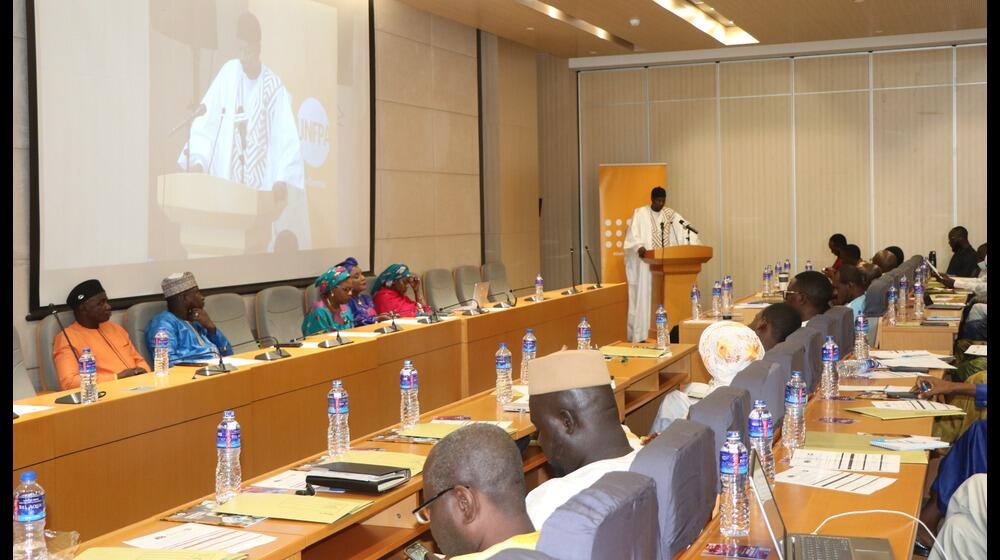Banjul, The Gambia- The role of the Parliament can be quite significant in shaping population dynamics, as legislatures have the power to enact laws and policies that directly or indirectly affect or influence various aspects of population growth and formation. Enhancing the understanding and awareness of National Assembly Members on population dynamics and its impact on national development is critical. The National Population Commission Secretariat in collaboration with UNFPA The Gambia recently convened a two-day training session for members of the National Assembly of The Gambia to enhance their understanding and further sought to equip their knowledge to formulate evidence-based policies in addressing population issues and its implications for the country's development.
The NAMs had the chance to analyse policy options and strategies that can help address population challenges in the context of sexual and reproductive and rights, youth development, and demographic dividend while promoting sustainable development. Speaking on the significance of the training, Honourable Alagie Mbowe, National Assembly Member for Upper Saloum said:
“The training was an eye-opener on issues relating to population and development and how we as legislators need to take a careful approach in dealing with the policies that govern them as well as well as its effect on the national budget”.
The Gambia, like many other developing countries, faces many challenges in population and development. These challenges are evident in the country's fertility rate, low contraceptive prevalence, and a rapidly growing youth population. Additionally, The Gambia is grappling with issues such as high maternal and child mortality rates, inadequate access to education, and limited economic opportunities for its citizens. All these issues have significant implications for the country's sustainable development and require urgent attention.
One key area to register progress in addressing these challenges is through the development of laws, policies, and programs that integrate population and development issues. As the highest oversight and legislative body in the country, the National Assembly plays a critical role in this regard.
“Definitely, it will [have an impact on policies], as we need to be more proactive particularly looking at the various growth centres and the rural urban migration and the impact it has on various social services, Hon Mbowe says on the impact of the training” said Hon Mbowe.
Hon Mbowe added that UNFPA needs to work more closely with the members of parliament who are the voice of the population in order to deliver more on its mandate.
As the National Assembly members concluded the training with a renewed understanding of the relationship between population and development, UNFPA in partnership with NPCS will continue to collaborate with the National Assembly in applying the knowledge gained to drive evidence-based policies that address the unique population challenges faced by women and girls in The Gambia.
Media contact: Fatoumatta Cham, Program Analyst, Communications (fcham@unfpa.org)


